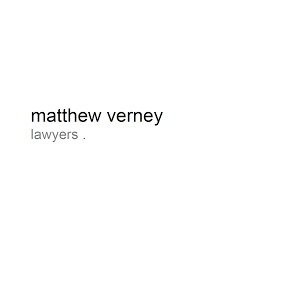Best Probate Lawyers in Devonport
Share your needs with us, get contacted by law firms.
Free. Takes 2 min.
List of the best lawyers in Devonport, Australia
About Probate Law in Devonport, Australia
Probate law in Devonport, Australia deals with the legal process that occurs after a person's death, particularly surrounding the validation of their will and the administration of their estate. This process ensures that property and assets are correctly distributed to beneficiaries, according to the deceased's last will and testament, and the payment of any debts occurs. In the case where no will is present, the assets are divided as per intestacy laws. The Supreme Court of Tasmania oversees probate law in Devonport.
Why You May Need a Lawyer
Although probate can sometimes be straightforward, hiring a lawyer may be necessary in various situations. For instance, if the will of the deceased is being contested or if the estate is insolvent, legal assistance can be highly beneficial. Complex estates, particularly those with multiple properties, large sums of money, or business interests may also necessitate the involvement of a lawyer. Additionally, if the deceased died intestate (without a will), the complicated process of dividing the estate according to Tasmanian intestacy laws will require professional legal guidance.
Local Laws Overview
In Devonport, the laws surrounding probate are dictated by the laws of Tasmania. A major feature of these laws is the requirement that an Executor, typically named in the will, or an Administrator, where there is no will, must apply for a grant of probate or letters of administration. Without these, they won't be legally authorized to manage and distribute the estate. Additionally, the Probate Rules 2017 outline the details of how to apply for probate, the forms to use and other necessary procedures. Estate property cannot be distributed until the validity of the will has been officially established by the court.
Frequently Asked Questions
What happens if there is no will?
If a person dies without leaving a valid will in Devonport, they are said to have died intestate. In such cases, the estate is divided according to the intestacy laws of Tasmania.
Can I administer an estate without a lawyer?
While it's possible to administer an estate without a lawyer, it's often not advisable, especially in complex cases. Hiring a lawyer can help navigate the legal processes involved, reducing stress and potential errors.
Who can contest a will?
In Tasmania, a will can be contested only by specific individuals, usually close family members of the deceased or those explicitly mentioned in the will.
What is a grant of representation?
A grant of representation is a legal document issued by the court that allows the Executor or Administrator the right to manage and distribute the deceased's estate.
How long does the probate process typically take?
The probate process can take several months, and longer if the will is contested. The complexity of the estate and any potential disputes can significantly impact the timeframe.
Additional Resources
Helpful resources can include the Supreme Court of Tasmania's Probate Registry for matters relating to wills, estates, and probate. The Tasmanian Law Society can also provide assistance in finding a suitable local lawyer specializing in probate law.
Next Steps
If you believe you need legal assistance with probate law in Devonport, the first step is to consult with a probate lawyer. It's essential to go prepared with any pertinent documents such as the will in question, relevant financial documents, and a list of the deceased's assets and debts. From here, your lawyer will guide you on the next steps necessary for your situation.
Lawzana helps you find the best lawyers and law firms in Devonport through a curated and pre-screened list of qualified legal professionals. Our platform offers rankings and detailed profiles of attorneys and law firms, allowing you to compare based on practice areas, including Probate, experience, and client feedback.
Each profile includes a description of the firm's areas of practice, client reviews, team members and partners, year of establishment, spoken languages, office locations, contact information, social media presence, and any published articles or resources. Most firms on our platform speak English and are experienced in both local and international legal matters.
Get a quote from top-rated law firms in Devonport, Australia — quickly, securely, and without unnecessary hassle.
Disclaimer:
The information provided on this page is for general informational purposes only and does not constitute legal advice. While we strive to ensure the accuracy and relevance of the content, legal information may change over time, and interpretations of the law can vary. You should always consult with a qualified legal professional for advice specific to your situation.
We disclaim all liability for actions taken or not taken based on the content of this page. If you believe any information is incorrect or outdated, please contact us, and we will review and update it where appropriate.








